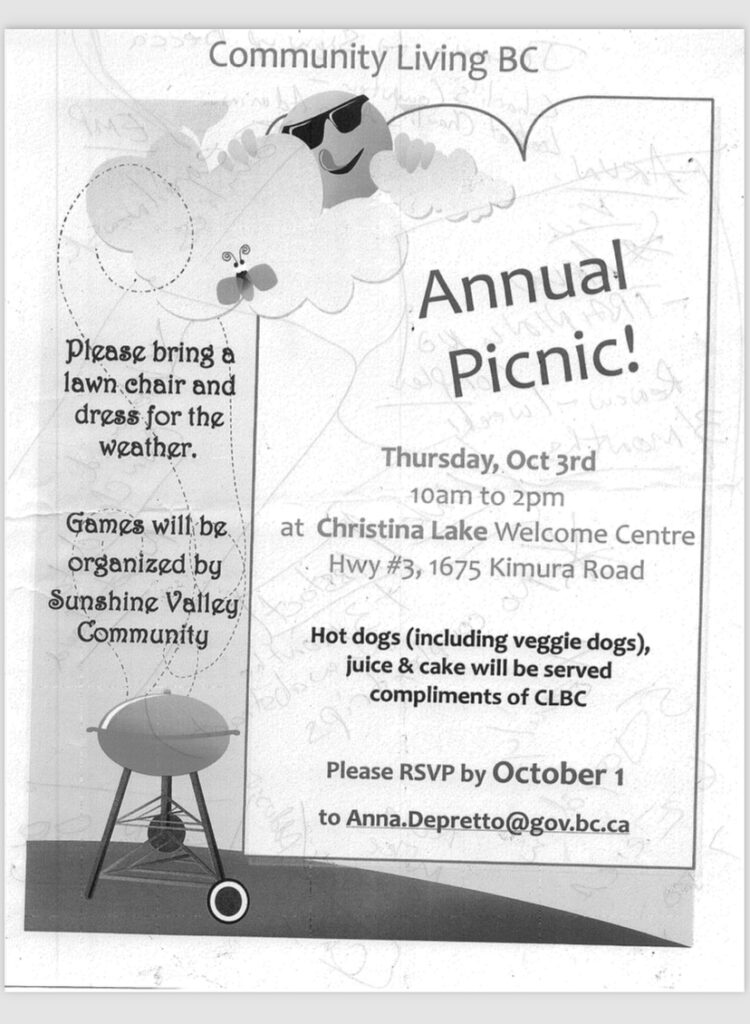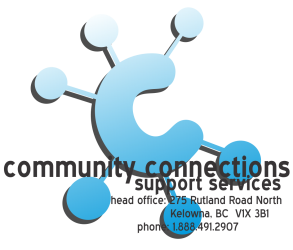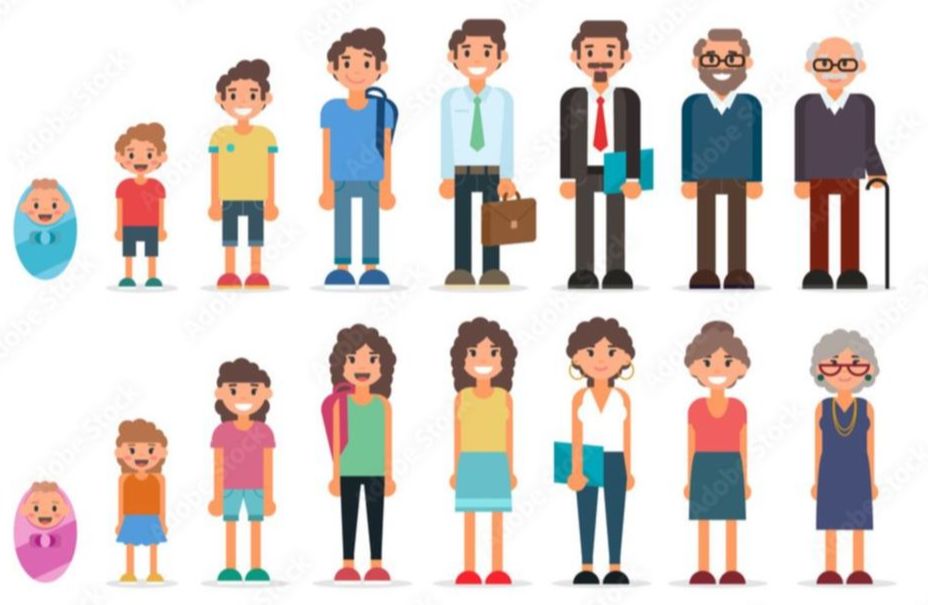This event has been cancelled due to provincial elections. Stay tuned in 2025 for the next one!



Community Connections Support Services' Home on the Web
 |
 |
| Dear Home Sharing Community Member,We hope you’re doing well. We wanted to remind you about our upcoming Connect & Collaborate session. This session is all about Empowering Your Vote: Resources and Tools for Every Citizen – BC Elections.If you haven’t signed up yet, now’s your chance! Don’t miss out on this opportunity to hear our amazing speaker! Presenter:Melanie Callas is the Outreach Advisor at Elections BC. She creates and shares resources about provincial elections, so voters have the information they need to vote. Session Details: Date: September 19, 2024 Time: 10:00AM – 11:30 AM (PST) Location: Virtual session via Zoom *Once registered the link to the session will be sent out the day prior to the event. Registration closes two days before the event at 4:00 PM. To ensure your participation, please register before this deadline. To Register: Visit our website at www.homesharingbc.ca, under the “Events” tab from the main menu, and click on the session link to sign up. Can’t Attend Live? We’ve Got You Covered! We understand that some of you may have work commitments and might not be able to attend the session live. Don’t worry; The session will be recorded, and if you’ve registered for the session, you’ll receive access to the recording. Pre-Submit Your Questions For those attending in-person or may not be able to attend, we invite you to pre-submit your questions via this LINK. This will help us prepare information and/or resources in advance. We answer pre-submitted questions first and time permitting live questions. Connect with us on social media! Facebook Group Instagram If you have any questions or need accommodations, please don’t hesitate to contact us directly. We are here to assist you. We hope you can join us for this important session. Thank you for being an integral part of our community, and we look forward to seeing you! Best regards, Trina Plamondon Executive Director Home Sharing Support Society BC trina@homesharingbc.ca Ph. 604.243.2430 Web: www.homesharingbc.ca Home Sharing is Living Better Together We acknowledge that HSSSBC office operates on the traditional, ancestral and unceded territory of the Coast Salish peoples-Squamish, Tsleil-Waututh & Musqueam First Nations. We respect the land and honour this tradition of land acknowledgment that dates back centuries for Indigenous people. CONFIDENTIALITY NOTICE: This message and any accompanying documents contain confidential information intended for a specific individual purpose. This message is private and protected by law. If you are not the intended recipient, you are hereby notified that any disclosure, copying or distribution, or the taking of any action based on the contents of this information, is strictly prohibited. |
 Copyright (C) 2024 Home Sharing Support Society BC. All rights reserved. Copyright (C) 2024 Home Sharing Support Society BC. All rights reserved.Thank-you for signing up for the Home Share Support Society BC’s Newsletter! Our mailing address is: Home Sharing Support Society BC 18th Flr, 450 SW Marine Drive Vancouver, British Columbia V5X0C3 Canada Want to change how you receive these emails? You can update your preferences or unsubscribe |

Dear Home Sharing Community Member,
We hope you’re doing well. We wanted to remind you about our upcoming Connect & Collaborate session. This session is all about Neurodiversity and Indigeneity: From Childhood to Adulthood.
If you haven’t signed up yet, now’s your chance! Don’t miss out on this opportunity to hear our amazing speaker!
Presenter:
Nicole Ineese-Nash (she/her) is an Oji-Cree educator, researcher, and community helper whose work focuses on Indigenous community development, mental health and wellbeing, education, and land-based practices. She is a member of Constance Lake First Nation in Treaty 9 territory and resides and works in Tkaronto. Nicole is an assistant professor in the schools of Early Childhood Studies and Child and Youth Care at Toronto Metropolitan University, as well as the academic coordinator of the Indigenous Child and Youth Engagement Certificate at the Chang School of Continuing Education. Nicole founded and serves as the executive director of a national non-profit organization called a Finding Our Power Together, which provides mental health resources to Indigenous communities across Canada. Nicole has worked directly with Indigenous youth, children, and communities for over a decade and seeks research and teaching opportunities that promote Indigenous self-determination and resurgence.
Session Details:
Date: July 18, 2024
Time: 10:00AM – 11:30 AM (PST)
Location: Virtual session via Zoom
*Once registered the link to the session will be sent out the day prior to the event.
Registration closes two days before the event at 4:00 PM. To ensure your participation, please register before this deadline.
To Register:
Visit our website at www.homesharingbc.ca, under the “Events” tab from the main menu, and click on the session link to sign up.
Can’t Attend Live? We’ve Got You Covered!
We understand that some of you may have work commitments and might not be able to attend the session live. Don’t worry; The session will be recorded, and if you’ve registered for the session, you’ll receive access to the recording.
Pre-Submit Your Questions
For those attending in-person or may not be able to attend, we invite you to pre-submit your questions via this LINK. This will help us prepare information and/or resources in advance. We answer pre-submitted questions first and time permitting live questions.
Connect with us on social media!
If you have any questions or need accommodations, please don’t hesitate to contact us directly. We are here to assist you.
We hope you can join us for this important session. Thank you for being an integral part of our community, and we look forward to seeing you!
Best regards,
Trina Plamondon
Executive Director
Home Sharing Support Society BC
Ph. 604.243.2430
Web: www.homesharingbc.ca
Home Sharing is Living Better Together
We acknowledge that HSSSBC office operates on the traditional, ancestral and unceded territory of the Coast Salish peoples-Squamish, Tsleil-Waututh & Musqueam First Nations. We respect the land and honour this tradition of land acknowledgment that dates back centuries for Indigenous people.
CONFIDENTIALITY NOTICE: This message and any accompanying documents contain confidential information intended for a specific individual purpose. This message is private and protected by law. If you are not the intended recipient, you are hereby notified that any disclosure, copying or distribution, or the taking of any action based on the contents of this information, is strictly prohibited.
 What’s On at the HSSSBCJuly 2024 Edition  Home Sharing Board Vacancies About  Co-operative Entrepreneur Training Program (CETP) Info  Accessible Service Delivery Feedback Happy July to everyone in the Home Sharing community! We have been very busy at the HSSSBC planning events, speakers & opportunities for you to provide your input to make a difference in home sharing. HSSSBC Board of Directors is RecruitingDo you want serve your community by volunteering some of your time and expertise to a non-profit board supporting the disability sector? If you are a self-advocate, or have legal or accounting experience we would like to hear from you. The Home Sharing Support Society BC currently has opportunities to serve on our HSSSBC Board of Directors. Our mission is to enhance and support the sustainability and quality of home sharing and other housing options for adults with developmental disabilities throughout British Columbia. The Home Sharing Support Society BC works collaboratively with a cross-section of the Home Sharing community from across the province. This includes families, people in a home sharing arrangement, providers, those coordinating services, self-advocates, funders and other key community partners. Learn More About Us: https://homesharingbc.ca/about-us/ Co-operative Entrepreneur Training Program (CETP)Are you or someone you know gifted with an exceptional talent or business idea but face barriers to employment? Vancouver Island University offers a unique opportunity that might be the perfect fit. The Cooperative Entrepreneur Training Program (CETP) is designed to empower individuals with disabilities or other employment barriers to turn their entrepreneurial dreams into reality. CETP is an online program that equips you with crucial business skills needed to start and run your own business. This includes everything from business strategy and financial literacy to digital marketing. The program is tailored for Canadians over the age of 17 who have diversabilities or any barriers that hinder regular employment. Program Highlights: Flexible Online Delivery: Participate from anywhere in Canada. Mentorship: Get paired with experienced business owners who provide personalized guidance. Financial Support: Access multiple sources of funding to cover your program costs, with a safety net to withdraw without fees if funding isn’t secured. Learn more here! Check your Bias!The IAT measures the strength of associations between concepts (e.g., black people, gay people) and evaluations (e.g., good, bad) or stereotypes (e.g., athletic, clumsy). The main idea is that making a response is easier when closely related items share the same response key. When doing an IAT you are asked to quickly sort words into categories that are on the left and right hand side of the computer screen.Take your test here! Interesting StudyConscious and Unconscious Disability Attitudes In this study patterns of explicit (conscious) and implicit (unconscious) attitudes towards disability are examined. BC Government’s Accessibility Feedback ToolThe BC government is making it easier for people with disabilities to provide feedback on accessibility! They’ve launched an online tool to share your experiences with provincial government services. You can find it on the “Accessibility” link at the bottom of any government webpage, or directly at gov.bc.ca/accessibilityfeedback. And if you prefer, you can still provide feedback by email, phone, or mail. Accessible Service Delivery From May 31 to July 31 2024, people, organizations and industry groups within B.C. are invited to provide input on draft recommendations for Accessible Service Delivery and Employment Accessibility standards under the Accessible British Columbia Act. These recommendations will form the basis of future accessibility regulations in B.C. (source: https://engage.gov.bc.ca/accessiblebcactstandards/) |
 What’s On at the HSSSBCJune 2024 Edition What’s On at the HSSSBCJune 2024 Edition Home Sharing Board Vacancies Home Sharing Board VacanciesAbout  Trauma Informed Mediation Trauma Informed MediationInfo  Accessible Service Delivery Accessible Service DeliveryFeedback Happy June to everyone in the Home Sharing community! We have been very busy at the HSSSBC planning events, speakers & opportunities for you to provide your input to make a difference in home sharing. Important Days in JuneAlzheimer’s & Brain Awareness MonthDravet Syndrome Awareness MonthNational Employee Wellness MonthCataract Awareness MonthThe Longest Day (Alzheimer’s Awareness) – June 21Dravet Syndrome Awareness Day – June 23National PTSD Awareness Day – June 27 Home Sharing Support Society BC – Board Member VacanciesThe Home Sharing Support Society BC currently has some opportunities to serve on our HSSSBC Board of Directors. Want to contribute? If you have are a self-advocate, or have legal or accounting experience we would like to hear from you. The Home Sharing Support Society BC works collaboratively with a cross-section of the Home Sharing community from across the province. This includes families, people in a home sharing arrangement, providers, those coordinating services, self-advocates, funders and other key community partners. Learn More About Us: https://homesharingbc.ca/about-us/ Accessible-IT converts your PDFs into accessible versions for people with visual or cognitive disabilities. As many as 20% of internet users have some form of visual impairment. 1 in 3 adults will experience blindness or partial sight as they age. Click HERE to check it out! A Trauma-Informed Meditation to Uncover the Potential for HealingA 12-Minute Meditation to Uncover the Potential for Healing Stop. Here, simply notice any reactions you’re having in this moment. You might notice a particular sensation or stressor. Simply notice. This gentle act of noticing allows us to create some space for our automatic reactions. When we notice, we allow ourselves to choose to respond with intention. Take a breath. Allow yourself to breathe as deeply as is comfortable for you. Breathing deeply can bring us to a state of equilibrium—to a place of support, and maybe even a little peace. Observe. With this greater sense of ease that you’re cultivating, you can continue to observe what is arising for you in this moment. Between stimulus and response, there is space. Imagine. Now, let’s imagine together. First, imagine a door and an invitation to open the door. Imagine walking through and inside the space feels quiet and peaceful. Pause there. Now, bring to mind a memory that brings feelings of joy, and peace, and even a little excitement. Feel the energy of this moment. Pause there. Next, bring to mind a moment when you felt awe. Maybe a beautiful scenic view at the end of a long hike. Imagine the work it took to get you there. And now feel the satisfaction of arriving at this spot. Feel the joy. Pause there. Finally, imagine a kind, loving figure, maybe a grandmother figure. Feel them sharing their warmth and love with you. Reminding you that you are loved. Rest in that peace and love for a moment. Know that this kind, loving space is available to you at any time. Proceed. When you’re ready, bring your attention back to your breath, wiggle your fingers and toes. Know that you can carry this feeling of spaciousness, joy, trust, and ease into your day with you. Mindfulness Practice, helps with Cultivating Mindfulness through Meditation (link) The NTG is a not-for-profit organization charged with ensuring that the interests of adults with intellectual and developmental disabilities who are affected by Alzheimer’s disease and other causes of dementia – as well as their families and friends. Recently, they held an online webinar and shared some resources that would be useful for the home sharing community: Guidelines for Structuring Community Care and Supports for People with Intellectual Disabilities Affected by Dementia (link). Dalton Protocol for Recording Baseline Information – Instrument Guide (link) NTG-Early Detection Screen for Dementia (print version here, electronic version here) Jenny’s Diary (link) Accessible Service Delivery From May 31 to July 31 2024, people, organizations and industry groups within B.C. are invited to provide input on draft recommendations for Accessible Service Delivery and Employment Accessibility standards under the Accessible British Columbia Act. These recommendations will form the basis of future accessibility regulations in B.C. (source: https://engage.gov.bc.ca/accessiblebcactstandards/) |
CLBC is a designed agency with specific responsibilities under the Adult Guardianship Act related to responding to all allegations of abuse and neglect involving adults eligible for CLBC services.
During this online workshop, we will discuss the following topics:
Key topics will include:
This event will take place on Thursday, May 30, 2024 from 9:00 am – 12:00 pm PDT / 10:00 am – 1:00 pm MDT
If you have any questions please do not hesitate to reach us at events@pivotpoint.ca
Buy Tickets / Join the Guestlist
Need help? Contact the event organizer Privacy Policy
 |
  |
| Dear Home Sharing Community Member,We hope you’re doing well. We wanted to remind you about our upcoming Mental Health and Wellness Webinar!If you haven’t signed up yet, now’s your chance! Don’t miss out on this opportunity to hear our amazing speakers!Presenters:Jessica grew up in a close-knit community nestled in the heart of Labrador. She is a proud granddaughter, daughter, sister, auntie, cousin, friend, partner, and dog mom. Currently residing on Treaty 8 Territory in Fort McMurray, Alberta, Jessica works as a Community Wellness and Protection Advisor with the Canadian Red Cross. Jessica comes from a background in Addiction Counselling with lived and learned experience, which contributes to her work in implementing initiatives that promote physical, mental, emotional, and spiritual wellness. Jessica believes in the strength of grassroots movements and encourages tangible action plans to create meaningful changes. Beyond her professional endeavours, Jessica finds inspiration and fulfillment in the simple joys of life. Whether she is engaging in the gentle art of beading, a practice that allows her to connect with her cultural roots or sharing moments with her partner and fur baby in the great outdoors, Jessica embraces each day with openness and gratitude. Michelle Skanes joined the Canadian Red Cross as a Registered Nurse/Public Health Advisor with the Indigenous Peoples Help Desk in 2021. As a Mi’kmaq woman, and a proud member of the Qalipu First Nation in Newfoundland, Michelle strives to support Indigenous communities across the nation through health promotion initiatives and in community clinical supports. With a diverse background experience living and working in Indigenous communities, Michelle has been leading the Indigenous Opioid Harm Reduction team within the Canadian Red Cross, with a primary goal of enhancing the existing supports and services to further expand Indigenous cultural safety, relevance and knowledge within the product service line. Michelle comes from a nursing, education and business background, and this formal training combined with lived and learned experience has contributed to the development and direction of the Indigenous Opioid Harm Reduction team. For the past few years Michelle has been involved in Opioid Harm Reduction and supports that work with training including Indigenous Cultural Safety, Trauma Informed Care, Psychological First Aid, Suicide Prevention, Indigenous Mental Health and Addictions summits, Canadian Nurses Association training in Opioid Use and Opioid Use Disorder, as well as Canadian Red Cross training in First Aid for Opioid Emergencies, Opioid Harm Reduction Champion and Opioid Harm Reduction Leadership Course. She firmly believes that even tiny, positive, strengths-based changes can have immense cumulative positive impacts and integrates advocacy for improvements in the lives of Indigenous peoples on a daily basis both within her work and life. Collaboratively, one step at a time, we can reduce the impacts of opioids and reduce harm in Indigenous communities. Session Details: Date: May 23, 2024 Time: 10:00AM – 11:30 AM (PST) Location: Virtual session via Zoom *Once registered the link to the session will be sent out the day prior to the event. Registration closes two days before the event at 4:00 PM. To ensure your participation, please register before this deadline. To Register: Visit our website at www.homesharingbc.ca, under the “Events” tab from the main menu, and click on the session link to sign up. Can’t Attend Live? We’ve Got You Covered! We understand that some of you may have work commitments and might not be able to attend the session live. Don’t worry; The session will be recorded, and if you’ve registered for the session, you’ll receive access to the recording. Pre-Submit Your Questions For those attending in-person or may not be able to attend, we invite you to pre-submit your questions via this LINK. This will help us prepare information and/or resources in advance. We answer pre-submitted questions first and time permitting live questions. Connect with us on social media! Facebook Group Instagram If you have any questions or need accommodations, please don’t hesitate to contact us directly. We are here to assist you. We hope you can join us for this important session. Thank you for being an integral part of our community, and we look forward to seeing you! Best regards, Trina Plamondon Executive Director Home Sharing Support Society BC trina@homesharingbc.ca Ph. 604.243.2430 Web: www.homesharingbc.ca Home Sharing is Living Better Together We acknowledge that HSSSBC office operates on the traditional, ancestral and unceded territory of the Coast Salish peoples-Squamish, Tsleil-Waututh & Musqueam First Nations. We respect the land and honour this tradition of land acknowledgment that dates back centuries for Indigenous people. CONFIDENTIALITY NOTICE: This message and any accompanying documents contain confidential information intended for a specific individual purpose. This message is private and protected by law. If you are not the intended recipient, you are hereby notified that any disclosure, copying or distribution, or the taking of any action based on the contents of this information, is strictly prohibited. |
 Copyright (C) 2024 Home Sharing Support Society BC. All rights reserved. Copyright (C) 2024 Home Sharing Support Society BC. All rights reserved.Thank-you for signing up for the Home Share Support Society BC’s Newsletter! Our mailing address is: Home Sharing Support Society BC 18th Flr, 450 SW Marine Drive Vancouver, British Columbia V5X0C3 Canada Want to change how you receive these emails? You can update your preferences or unsubscribe |